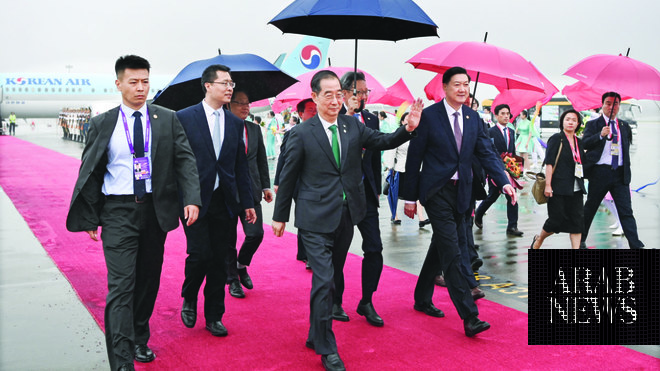
TOKYO: A majority of voters in a referendum on Okinawa opposed a plan to relocate a US military base within the southern Japanese island, but the central government said on Monday it intended to press ahead with its construction plans.
Just over 70 percent of voters opposed relocating the US Marines’ Futenma air base within Okinawa in Sunday’s non-binding referendum, with a turnout of 63 percent. Okinawa governor Denny Tamaki was elected on that platform in September.
Okinawa is host to the bulk of US military forces in Japan, whose alliance with Washington is central to its security. Many Okinawa residents associate the bases with crime, pollution and accidents.
The governor is required to respect the outcome and notify the premier and the US president if the top response was backed by more than 25 percent of eligible voters.
Tokyo’s central government and Okinawa authorities have long been at loggerheads over the plan to move the air base.
A US-Japan agreement calls for moving the base, which is surrounded by schools, hospitals and shops, to a less populated area, called Henoko, on the northern part of Okinawa.
However, many Okinawa residents, indignant at what they see as an unfair burden, want the base off the island altogether.
Japanese Prime Minister Shinzo Abe told reporters on Monday the government was taking the results seriously, and would work to obtain the understanding of Okinawa residents, but that plans to move the base could not be deferred.
“We cannot avoid the necessity of moving Futenma, said to be the most dangerous base in the world,” Abe said, noting that two decades had passed since the agreement to do so was made.
“We can’t put this off any longer,” he said.
Tamaki called on the government to accept the “firm decision” of the Okinawa people that the base relocation was unacceptable.
“I urge the government to change their view that relocating the base to Henoko is the only way and halt construction, along with more dialogue with us on closing Futenma and returning the land to us,” Tamaki said.
The referendum result was unlikely to derail the central government’s stance, said former Chuo University professor Steven Reed.
“It’s not a matter of local government policy. It’s a matter for foreign policy. The deal has been made,” he said.
The outcome could give a bit of a boost to the struggling opposition Constitutional Democratic Party of Japan (CDPJ) — the largest among Japan’s opposition groups — ahead of an upper house election this year, Reed said.
The CDPJ opposes the Futenma relocation plan.
“It could make a substantial difference in the next election in Okinawa and it could make some difference nationwide,” he said.
Support for the CDPJ was just under 6 percent in a February survey by public broadcaster NHK, dwarfed by about 37 percent for Abe’s Liberal Democratic Party.












